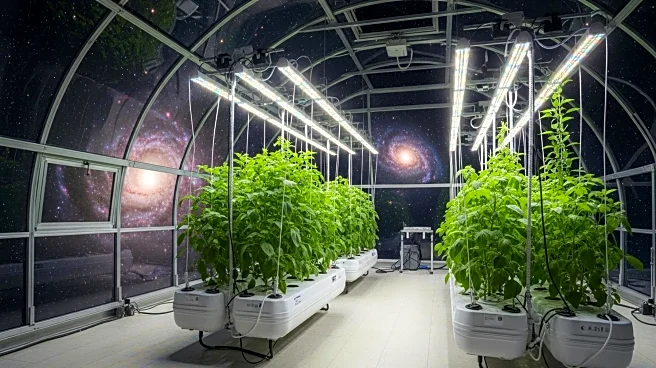What's Happening?
The global space agriculture market is projected to experience significant growth, driven by major players such as NASA, SpaceX, and Blue Origin. The market is expected to expand at a compound annual growth rate of 14.5% from 2025 to 2033, reaching a value of $1.2 billion. Space agriculture involves growing crops in space or controlled environments using technologies like hydroponics and aeroponics. This practice supports food production for astronauts and potential extraterrestrial colonies. The market is segmented by type, including controlled environment agriculture and algae farming, and by application, such as long-duration space missions and Mars colonization. North America is currently the dominating region, while Asia-Pacific is the fastest-growing market.
Why It's Important?
The expansion of the space agriculture market is crucial for the sustainability of long-term space missions and potential planetary colonization. As space exploration efforts increase, the need for reliable food production systems becomes more pressing. This market growth reflects advancements in technology and innovation, which are essential for overcoming challenges related to food security and resource limitations in space. The involvement of major space agencies and companies indicates a strong commitment to developing viable solutions for sustaining human life beyond Earth. Additionally, the market's growth could lead to technology transfer and applications on Earth, potentially benefiting agricultural practices and food security globally.
Beyond the Headlines
The development of space agriculture raises ethical and environmental considerations, such as the impact of genetic engineering and closed-loop systems on ecosystems. As technology advances, there may be debates over the balance between innovation and preserving natural environments. Furthermore, the high costs and technical challenges associated with space agriculture could limit accessibility, raising questions about equity and resource allocation. Long-term, the success of space agriculture could influence cultural perceptions of food production and sustainability, potentially reshaping agricultural practices on Earth.










